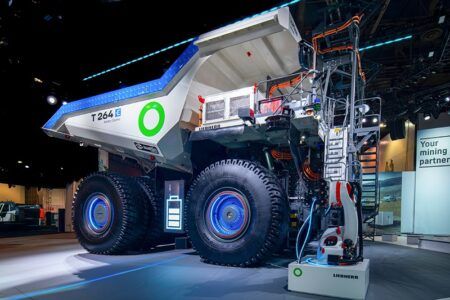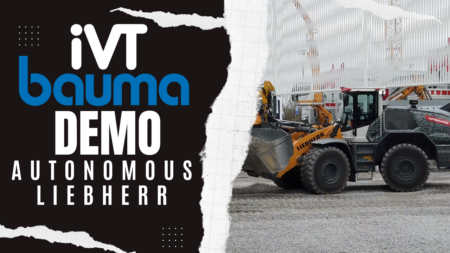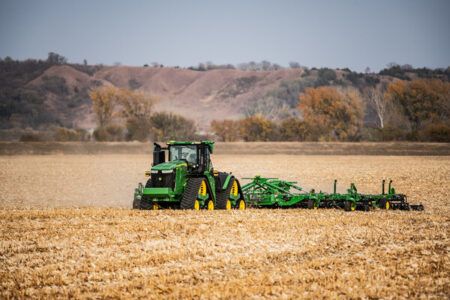Bosch Rexroth will use the occasion of October’s Bauma Munich to present an integrated portfolio for the needs-based automation of off-highway machines. The range comprehends assistance functions for excavators, wheeled loaders and telehandlers including advanced sensor systems and intuitive operating devices.
These include driver assistance functions for more efficient working and even virtual walls and emergency braking assistants for greater work safety. Ready-to-use software modules help to reduce the integration time into existing and future vehicle architechtures and speed up their market launch. As a hardware platform for higher automation levels, Bosch Rexroth will announce a microprocessor-based, ROS2-compatible robotic control unit.
The future of construction, handling and municipal vehicles includes anything from high-performance assistance functions to fully autonomous operation. However, the complexity involved means that manufacturers of off-highway machines are faced with significant challenges. It is important to minimize not only the development outlay but also the technological, economic and legal risks.
The automation portfolio presented at bauma will be based on the proven BODAS kit for hardware, software and telematics. A good starting point are the BODAS AS software modules, in particular the ready-to-use ASRun modules for Rexroth control units (RC), which are easy to integrate. They can be adapted through parameterization and put into operation over the air (OTA).
Functions for greater productivity and safety
The current range of assistance functions for productive and safe working processes includes easier leveling, load capacity measurement during handling operations, electronic vibration damping and various motion control systems for wheeled loaders and telehandlers. Virtual walls and virtual rotary limiting systems protect the immediate surroundings by preventing the machine from accidentally leaving the safe working area. A number of functions can be adapted for other sectors, for example for tractor front loaders.
A groundbreaking HMI concept provides an intuitive user experience. It is based on ergonomic Sense+ joysticks with multidimensional optical and haptic feedback as well as high-resolution, high-contrast and glove-operable BODAS displays with easy-to-record visualizations for the relevant assistance functions.
The BODAS ecosystem also includes telematic modules for remote updates over the air (OTA), software remote maintenance and interfaces for transferring the wide range of operating data generated by the automation functions to ERP systems and their digital processes.
The new sensor systems for ultrasound, radar and inertial measuring systems form the basis for numerous other automation functions by recognizing objects in the surroundings and recording the position of the kinematic systems with respect to each other via acceleration. There are plans to add extra functions and sensors such as Lidar on a step-by-step basis.
The next generation of control units
With the concept of a processor-based robotic control unit, Bosch Rexroth gives an insight into the next generation of control hardware. In the future, it will serve as a standardized, high-performance control platform for higher levels of automation.
The need for high-performance, flexible control platforms is the result of the high computing power required for more automation. And in the future, the ability to develop, port and update software modules quickly and easily will become even more important. With a software architecture arranged in layers, the next generation of control units ensures that this is possible. They are based on Linux as the operating system and a clearly abstracted middleware layer and are compatible with the robotic operating system ROS2.
For object recognition and terrain mapping, Bosch Rexroth is working with Bosch to develop a ROS2-compatible perception stack. On this basis, Bosch Rexroth plans to offer complete function packages in the future – from sensor integration and object recognition to machine intervention.
The new control platform is currently being developed. Prototypes for pilot projects will be available from the middle of 2023.





